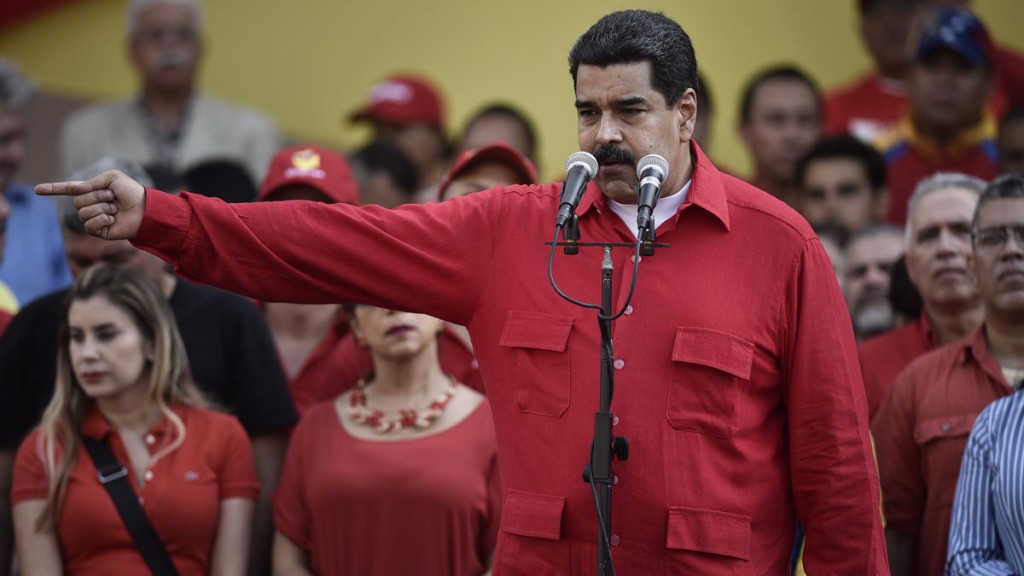
Venezuela is in the midst of a severe crisis. The IMF expects inflation to exceed 700% this year and GDP to shrink by 10%. Years of declining output and a crash in oil prices have left the country short of cash. There is mounting social and political unrest under an increasingly oppressive government and its most important enterprise, state-owned oil firm PDVSA, is on the verge of default.
To most investors, Venezuela looks less like a market than a mess, says The Economist. Yet its sovereign bonds are the best performers in emerging markets this year. Some strong-stomached investors are doubling down on high yielding government and PDVSA bonds.
Nicolás Maduro’s government is keen not to scare off foreign creditors and has prioritised debt service over other urgent needs. Bond-buyers are betting it will continue paying to prevent them seizing assets. “The cost of them to default on the debt is much higher than any benefits they will receive by defaulting on the debt,” says James Craige of Stone Harbor Investment, quoted in the Wall Street Journal.
PDVSA has proposed a plan to swap near-term bonds for debt maturing in 2020. Holders of 39% of the $7.1bn-worth of bonds coming due next year have so far agreed to tender their securities for new debt. Officials at PDVSA had repeatedly said they needed investors with at least half the debt to participate in the swap or they would struggle to meet obligations.
The deal is seen by some as a sign that both the company and the country can avoid a default. But for others, they are just buying time. “It’s a play on whether the oil price recovers enough for them to pay it,” said Phillip Blackwood of EM Quest, adviser to Denmark’s Sydbank A/S on emerging-market debt, on Bloomberg.
Many analysts remain sceptical about an imminent rally in oil prices. Even if it happens, Maduro’s regime may not last long enough to enjoy it. But for some investors who are sticking with the country’s debt, that’s part of the appeal. “Such investors believe Venezuelan assets will be re-evaluated once a new government takes office and potentially opens the door for help from the IMF,” say Matt Wirz, Carolyn Cui and Anatoly Kurmanaev in The Wall Street Journal. “With huge oil reserves underground, the country has huge upside potential, they argue.”
Get set for the tech IPO rush
The unicorns – the tech sector’s name for private companies valued at over $1bn – are finally trotting towards initial public offerings (IPOs), says Tom Braithwaite in the FT. “The pressure from investors and employees to cash in is mounting,” and “the need for a higher profile of more liquid stock to fund acquisitions is becoming more acute.”
Until now, the flood of money into private firms ($261bn since 2010, according to PwC MoneyTree) has helped unicorns avoid public markets. That’s one reason why this year is set to be historically slow for new offers in the US, with only 14 tech IPOs compared with 371 in 1999 at the height of the bubble, and an annual average of 49 since 1980. But now with investors looking to cash out on their investments, something has to give, Scott Kupor of US venture capital firm Andreessen Horowitz, tells the FT.
Hence Snap – parent of messaging app Snapchat – has hired banks to prepare a $25bn IPO that could take place early next year. Spotify, the Swedish streaming music service, is also expected to go public next year, while Uber, the ride-hailing app, says an IPO will happen in the next few years.
Chinese supply cuts send coal soaring
The price of thermal coal, used in power stations, has more than doubled to $100 a tonne this year after policymakers in Beijing cut the number of working days in China’s coal mines. The move forced Chinese power plants and traders to source more material from overseas.
Metallurgical coal, which is used to make steel, has risen from $78 a tonne to $243 a tonne, according to the Steel index. The price surge has yet to be fully reflected in earnings forecast for big producers, says the Financial Times, partly because analysts and investors are sceptical the rally will be sustained or that the policy may be reversed.